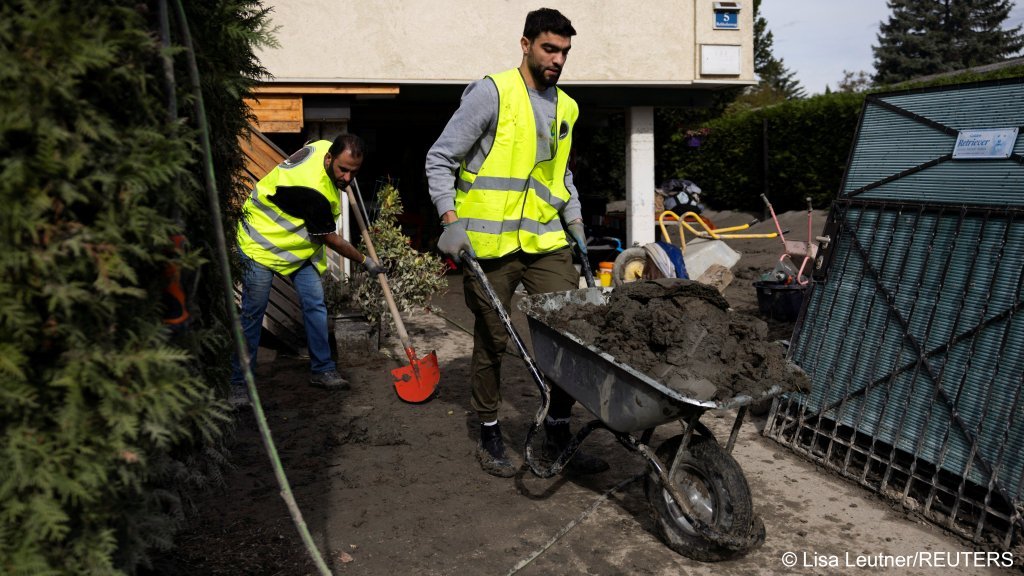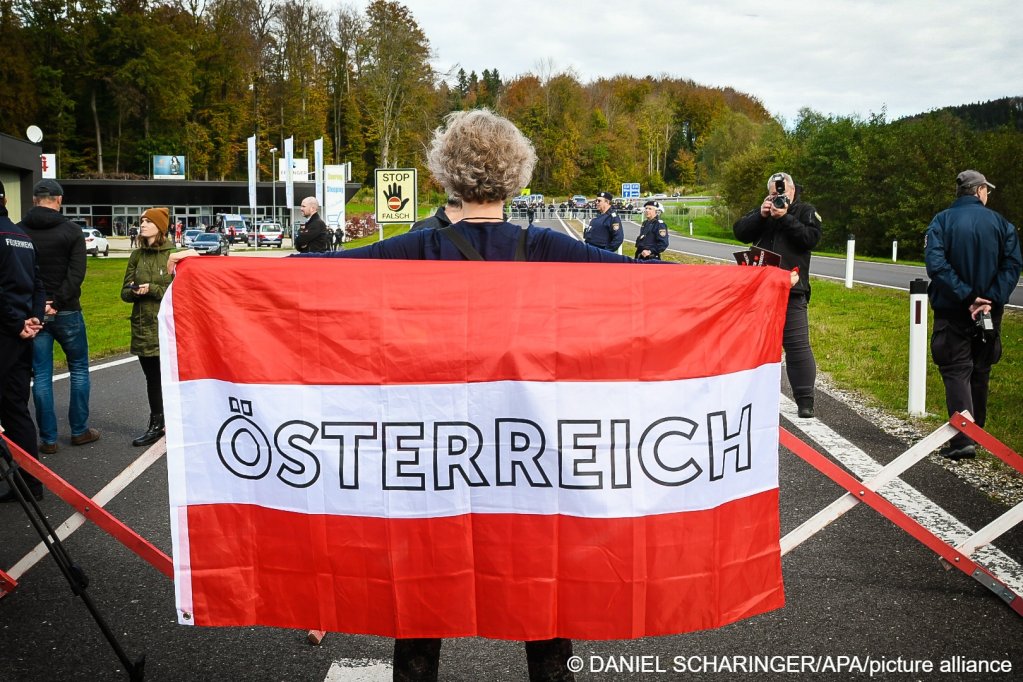Leaders of right-wing parties from France, the Netherlands, Italy and Hungary were cheered by the victory of the Freedom Party (FPÖ) in Austria’s national elections. But migration experts fear a 'race to the bottom' in asylum policy across the EU.
In what social scientist Gerald Knaus is calling a "political nightmare", Herbert Kickl’s party captured about 29 percent of the vote, despite being openly racist and linked to white supremacists who promote ethnic cleansing.
Analyzing the election outcome, Knaus, who heads the European Stability Initiative, notes that support for the FPÖ and its 'Fortress Europe' platform came mostly from people in the regions, not the capital where the majority of refugees and asylum seekers in Austria actually live.
This is a paradox also seen in the recent German state elections, where the far-right Alternative for Germany (AfD) received huge support in areas with relatively small immigrant populations.
It’s what’s known as 'contact theory' among experts like Judith Kohlenberger, a migration researcher at Vienna’s University of Economics and Business. "If there aren’t enough opportunities for contact between groups, then it’s easy (…) to focus on resentment, to create images and narratives about refugees and migrants that are not rooted in reality," Kohlenberger told InfoMigrants.
"You need contact with The Other [refugees and asylum seekers] for a reality check."
Read AlsoAustria: What could the elections mean for migrants and migration policy?

Integration framed as a migration issue
Yet even in Vienna, the capital that has taken in the most refugees per capita in the EU in the past decade, according to Knaus, a failure of integration is often cited as being at the root of Austria’s immigration problem.
Austria has long been a country of high immigration, both humanitarian and labor migration, says Kohlenberger. Yet despite having brought so-called guest workers into the country since the 1960s, it has struggled to recognize itself as a "country of immigration" and thus until recently failed to put in place any measures to integrate migrants in schools, housing or welfare policies.
The problems that have arisen as a result – such as perceptions that asylum seekers are a financial burden on the state, criminals or Islamists – are being framed as a migration problem, rather than a structural problem, however. "This allows populist parties to engage in scapegoat politics," says Kohlenberger.
Read AlsoAustria passes welfare reform that spells cuts for foreigners
The researcher predicts that, whatever the outcome of negotiations to form a government, the FPÖ will continue to have a strong influence on the discourse.
The party has made no secret of its objective to stop accepting any asylum applications – even though experts claim this would be in violation of international law.
It also wants to carry out thorough checks on the citizenship of naturalized Austrians and prevent asylum seekers from gaining citizenship in the future, and reject the EU’s Pact on Migration and Asylum, which it considers too weak.

Tidal wave
The FPÖ cannot achieve its aims on its own. But its win has already been flagged as a further boost to hard-right parties across Europe, including those in the group inside the European Parliament led by France’s National Rally (RN).
Following the result on Sunday, congratulations came from RN leader Marine Le Pen "After the Italian, Dutch and French elections, this tidal wave which supports the defence of national interests, the safeguarding of identities and the resurrection of sovereignties, confirms the triumph of the people everywhere," she wrote in a post on X.
Bjoern Hoecke, one of the leaders of the AfD in Germany, called the FPÖ's win a "sensation" and said on X: "The FPÖ victory isn't just a victory for Austria -- it extends far beyond the borders of the Alpine republic and is a good sign of progress for Europe."
Similar sentiments were expressed by Geert Wilders, whose PVV party leads the Dutch government. Wilders wrote on X: "We are winning! Times are changing! Identity, sovereignty, freedom and no more illegal immigration/asylum is what tens of millions of Europeans long for!"
The FPÖ's victory represents a continuation of the shift of the political spectrum in Europe to the right, says Judith Kohlenberger, which has seen parties of the center increasingly adopting the policies and the rhetoric of the far-right.
"I think what we’re seeing is a race to the bottom when it comes to asylum law and the asylum system as a whole."
Read AlsoHow Europe's far right is changing EU asylum policy
With Reuters
